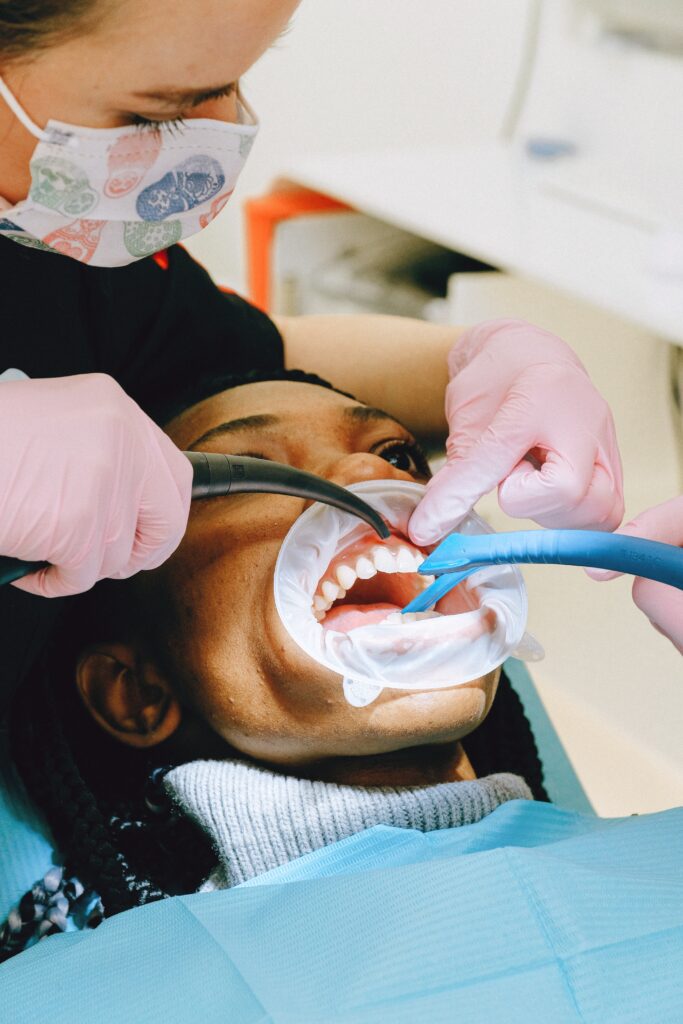Tips For Anti Aging Dental Care

As we age, it’s not just our skin and bodies that require attention – our oral health is equally important. Taking care of our teeth and gums is essential to maintaining a youthful smile and preventing dental problems that can arise with age. In this blog post, we will discuss some valuable tips for anti-aging dental care that can help you keep your smile young and healthy as you grow older.
Brush and floss regularly:
Proper oral hygiene is the foundation of good dental care, regardless of your age. Brush your teeth at least twice a day for two minutes each time, using a fluoride toothpaste and a soft-bristled toothbrush. Be sure to clean all surfaces of your teeth, including the fronts, backs, and chewing surfaces, as well as your tongue and the roof of your mouth. Floss between your teeth and along the gumline daily to remove plaque and food particles that your toothbrush can’t reach.
Use mouthwash:
Incorporating an antimicrobial mouthwash into your oral hygiene routine can provide additional protection against gum disease and bad breath. Look for a mouthwash that contains fluoride and kills germs to help strengthen your teeth and gums.
Stay hydrated:
Drinking plenty of water throughout the day is not only essential for your overall health, but it also promotes saliva production, which helps rinse away bacteria and protects your teeth from decay. Dry mouth is a common issue in older adults due to certain medications or medical conditions, so staying hydrated can help combat this problem.
Quit smoking and limit alcohol consumption:
Smoking and excessive alcohol consumption can wreak havoc on your oral health, leading to gum disease, tooth loss, and oral cancer. Quitting smoking and limiting your alcohol intake can significantly reduce your risk of these dental problems, and overall, contribute to better health and a younger-looking smile.
Watch your diet:
A healthy diet is crucial for good oral health. Avoid or limit sugary foods and beverages, as they can increase the risk of tooth decay. Instead, opt for a well-balanced diet that includes plenty of fruits, vegetables, whole grains, lean proteins, and dairy products. Calcium-rich foods such as milk, cheese, and yogurt are especially beneficial for maintaining strong teeth and bones.
Visit your dentist regularly:
Regular dental check-ups and professional cleanings are vital for maintaining optimal oral health as you age. Your dentist can detect and address any dental issues early on, preventing them from escalating into more significant problems. Your dentist can also provide guidance on proper oral care techniques and offer solutions for any specific issues you may be facing, such as tooth sensitivity or gum recession.
Consider cosmetic dentistry:
As we age, our teeth may become discolored, chipped, or worn down. Cosmetic dentistry procedures, such as teeth whitening, veneers, or dental bonding, can help improve the appearance of your teeth, giving you a more youthful and vibrant smile.
Wear a mouthguard:
If you’re involved in any physical activity or play sports, wearing a mouthguard can protect your teeth from injuries. Accidents or injuries to the mouth can cause tooth fractures, dislodgements, or loss, which can significantly impact your oral health and appearance.
Manage stress:
Chronic stress can contribute to various health issues, including oral health problems. High stress levels can lead to teeth grinding (bruxism) and temporomandibular joint (TMJ) disorders, which can cause tooth wear, jaw pain, and headaches. Practicing stress-reducing techniques, such as exercise, meditation, or yoga, can help minimize the impact of stress on your oral health.
Practice good overall health habits:
Maintaining good overall health can also have a positive impact on your dental health. Conditions such as diabetes, heart disease, and osteoporosis can affect your oral health, so it’s important to manage these conditions effectively through regular medical care and lifestyle modifications, as recommended by your healthcare provider.

Take care of your dentures or dental implants:
If you have dentures or dental implants, proper care is essential to ensure their longevity and functionality. Clean your dentures or dental implants thoroughly as per your dentist’s instructions and remove them at night to give your gums a break. Regular visits to your dentist for adjustments or replacements, if needed, can also help ensure their optimal performance.
Be mindful of teeth clenching or grinding:
Teeth clenching or grinding, known as bruxism, can cause tooth wear, jaw pain, and other dental problems. If you notice that you clench or grind your teeth, especially during sleep or times of stress, talk to your dentist. They may recommend a mouthguard or other treatments to protect your teeth and manage the condition.
Practice proper oral hygiene for denture wearers:
If you have dentures, it’s crucial to maintain good oral hygiene to prevent gum irritation, inflammation, and infection. Clean your dentures thoroughly and remove them at night to give your gums a chance to rest. Also, make sure to clean your mouth, including your gums, tongue, and palate, to remove any plaque or food debris.
Stay informed about medications’ effects on oral health:
Some medications, such as those for high blood pressure or osteoporosis, may have side effects that can affect your oral health. For example, certain medications can cause dry mouth or gum problems. Stay informed about the potential effects of your medications on your oral health, and discuss any concerns with your dentist or healthcare provider.
Practice good oral habits from a young age:
Prevention is key when it comes to anti-aging dental care. Start practicing good oral hygiene habits from a young age and continue them throughout your life. Teach your children about the importance of brushing, flossing, and eating a healthy diet to promote good oral health as they grow older.
Limit your intake of sugary foods and drinks:
Consuming excessive amounts of sugary foods and drinks can lead to tooth decay and gum disease, which can age your smile prematurely. Limit your intake of sugary foods and drinks, including soda, candies, and sweets, and opt for healthier options such as fruits and vegetables. If you do consume sugary foods or drinks, make sure to brush your teeth or rinse your mouth with water afterward to minimize the negative effects on your dental health.
Avoid using your teeth as tools:
Using your teeth to open bottles, tear open packages, or bite on hard objects can cause chips, cracks, and other dental damage. Avoid using your teeth as tools and use appropriate tools instead. Using your teeth for unintended purposes can lead to costly dental repairs and compromise the health and appearance of your teeth.
Use fluoride toothpaste and mouthwash:
Fluoride is a mineral that helps strengthen your teeth and protect against tooth decay. Use fluoride toothpaste and mouthwash as part of your daily oral care routine to help prevent cavities and maintain strong, healthy teeth. Consult with your dentist about the appropriate fluoride products for your needs.
Stay consistent with your dental appointments:
Regular dental check-ups and cleanings are essential for maintaining good oral health and preventing dental problems. Follow a consistent schedule of dental appointments as recommended by your dentist, which may include examinations, cleanings, X-rays, and other preventive treatments. Early detection and treatment of dental issues can help prevent further damage and ensure that your teeth and gums stay healthy as you age.
Taking care of your dental health is an important aspect of anti-aging care. By following these tips, including practicing good oral hygiene, maintaining a healthy lifestyle, staying hydrated, avoiding bad habits, considering cosmetic dentistry options, and managing stress, you can maintain a youthful and healthy smile as you age. Remember to consult with your dentist regularly for personalized advice and treatment recommendations.
Taking proactive steps to care for your dental health can contribute to a confident and radiant smile that enhances your overall appearance for years to come. So, prioritize your oral health and embrace healthy dental habits to maintain a youthful and vibrant smile as you age




